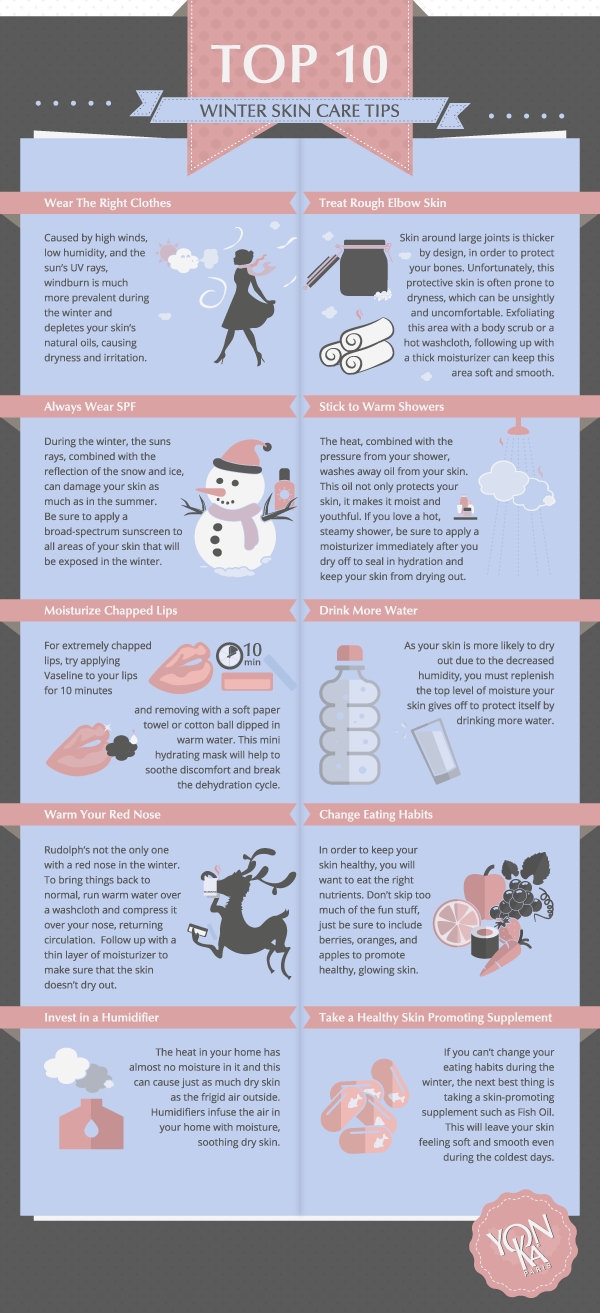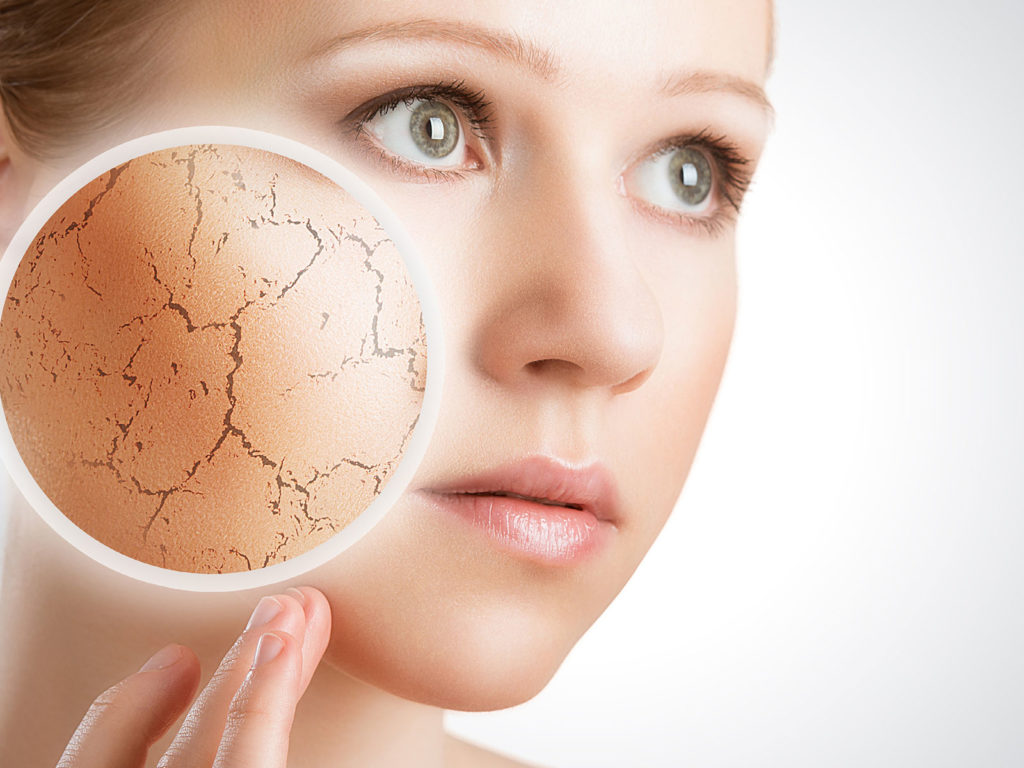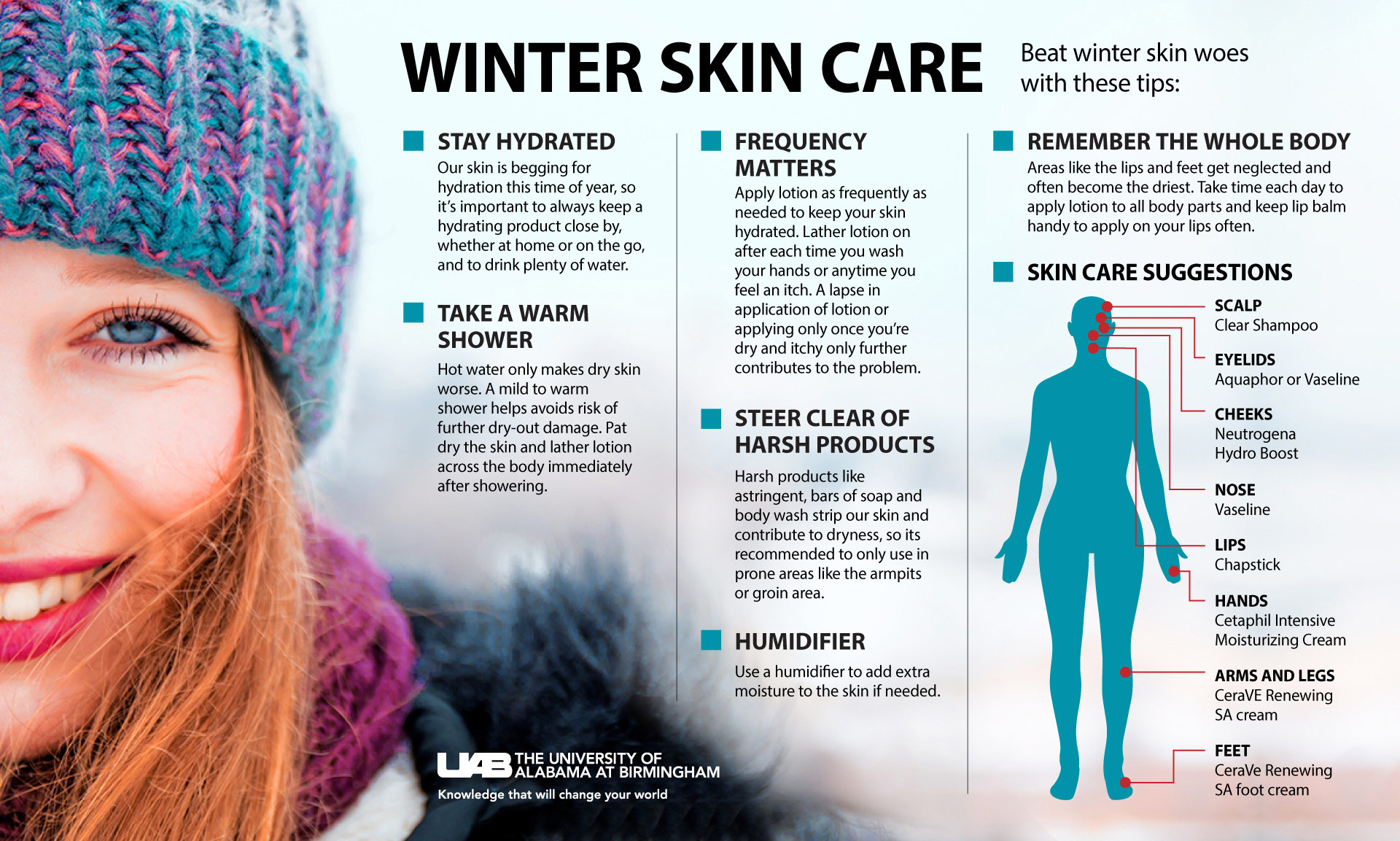
7 Best Winter Tips For Skin So You Stay Glowing When It’s Cold
Winter can be brutal to our skin, so if there was ever a season to up your skin-care game, it’s now. Our winter skin-care tips are here to help your skin health conditions. Read this post learn the best winter tips for skin.

Hi girls, how are you today?
It’s winter again.
And along with the brisk, refreshing air and the sun sparkling at mid-capacity, the world feels like it’s somewhat glowing.
Unfortunately, we can’t always say the same for our skin. When Jack Frost nips at our noses, his frisky touch has a way of making our skin feel a little less than refreshed.
Have you ever noticed how your skin responds to the changing seasons?
If you’re like me, winter doesn’t necessarily mean feeling low or incapacitated, quite the opposite. I find winter a perfect time to lay low, create healthy, cozy routines, and catch up on a good book.
Still, you shouldn’t have to wait until the spring thaw for fresh, beautiful skin. That’s why I’ve collected my favorite winter beauty tips to leave your skin glowing when it’s freezing out.
Table of Contents
What Are The Best Winter Tips for Skin?
It’s no secret that harsh bitter temperatures and harsh dry air can wreak havoc on your skin. Being that you’re also exposed to less sunlight in the winter, it’s no wonder your skin night start to flare up.
The below winter hacks for skin will help you prevent that horrible dry winter skin (that can happen even if you have oily skin).
- Washing with a non-drying cleanser
- Moisturizing the top layer of your skin often
- Using natural products
- Give it a boost with moisturizing serums
- Drinking more water
- Avoiding harsh exfoliating
- Don’t forget your hands
Ready to maintain your skin healthy and never flaky all season long? Then read the below best skincare regimen to combat dry skin symptoms.

How to Keep Your Skin Healthy in Winter
You may have found a perfect moisturizer that works just dandy in warmer months. But as weather conditions change, so should your skin care routine.
Any skin routine worth its salt starts with two things: washing and moisturizing.
But if you want to get the most out of your face scrub and moisturizer during the harsh winter weather, you’ll want to employ a little strategy to your routine.
Luckily, we’ve got a few skin wellness tips that are just what your doctor prescribed to guarantee your skin looks healthy and glowing all winter long.
Let’s get right into it.
Wash with a cleanser that won’t strip skin of its natural oils
You’ll want to use lukewarm water when washing your face. And I’m not just saying that because using freshwater would feel like death this time of year.
Warm water will cleanse away oils for a cleaner face while making your pores look smaller. It also helps your skin better absorb your products.
Also, consider using the double-cleansing method for really removing your makeup at night. Start with a strong, oil-based cleanser. After rinsing this off, use a gentler soap.
Moisturizing often to hydrate your dry winter skin
Moisturizing is the key to trapping some much-needed moisture in our skin during the winter.
To get the most out of your routine, wait until after you’ve already washed your face. This will ensure your face is free from impurities. But you also want to avoid putting moisturizer on your skin when it’s too wet. Too much moisture will keep your products from being effective. A quick towel-dry will make sure your moisturizer works effectively.
Keep in mind that it’s not enough to simply apply hand cream in the morning and call it a day. Try to keep one at your desk, in your purse, inside your car so you remember to reapply the cream throughout the day.
The best way to maintain your skin healthy in winter is to moisturize it immediately after cleaning. And the reason for this is because any time you wash your face, you’re stripping your skin of its natural oils.

Experts say that it’s best to apply your moisturizer to damp skin. While this might seem odd, Dr. Estemalik explains that “the function of most moisturizers is to trap moisture in your skin. When you apply moisturizer on skin that’s really, really dry, it’s not going to be that helpful because there’s no moisture to trap.”
Takeaway: Apply your moisturizer to damp skin for best results, especially if you have dry skin to start with.
Use Natural Products
I don’t know about you, but I’m always on the lookout for exciting new skin-care products. But sometimes, the best option for our skin isn’t something brand new. It’s something older—old as dirt, you might say.
I’m talking about using products with more natural ingredients. These products are gentler on the skin and loaded with nutrients.
For example, if you’re trying to decide between two cleansers that use essential oils and fragrance oils, consider going with the one that uses essential oils, which are more natural.
If you have dry skin, buy soaps that are labeled ‘for sensitive skin’ and ‘fragrance-free’, as these contain fewer drying ingredients
Give it a Boost With Moisturizing Serums
While we are all forward to combating dry skin by following a natural skincare routine, a little help from their more powerful cousins can go a long way.
In winter months, steer away from clay masks, glycolic acid or salicylic acid, and retinoids, as these are harsher and have drying effects on your skin.
Instead, opt for a few powerful hydrating serums to add moisture to your skin.
- Lactic Acid: If you suffer from acne, Lactic Acids are one of the mildest forms of AHA, so it’s safe to use them on sensitive skin in the right concentrations.
- Hyaluronic Acid: Known for alleviating dry skin, reducing the appearance of fine lines and wrinkles, and speeding up wound healing. Hyaluronic acid keeps moisture in the skin, but it should be used in combination with a thick moisturizer.
Dry Skin Lately? Drink More Water
There are plenty of reasons to drink more water in the winter. More water helps you fight dehydration and those pesky flu-season bugs. But drinking more water is also a great way to keep your skin glowing this winter. Here are a few ways water can help your skin:
- Keeps skin elastic, preventing wrinkles
- Promotes moisturized skin
- Flushes out toxins
- Contributes to overall pH balance
Winter is here, but that doesn’t mean your skin has to suffer. By giving your skin a little more TLC this season, you can make sure your complexion glows more brightly than the sun off the snow.
Avoid Harsh Exfoliating
Exfoliating your skin helps remove dead skin cells from the surface of your skin. In turn, this can help keep your skin looking smooth and vibrant. But as magical as the results may seem, be careful not to over-exfoliate your skin.
Put simply, if you do it too often it has the wrong effects and it will be more likely to break down your skin’s moisture barrier and cause damage.
Don’t forget your hands
Often we think of winter skin care, we immediately think of our face. But the remaining parts of your body get equally affected when the weather is dry.
Think of your hands, for example. The skin on your hands is thinner than on most parts of the body and has fewer oil glands. That means it’s harder to keep your hands moist, especially in dry weather. This can lead to itchiness and cracking.
Especially in a now-Covid world. We are all seemingly addicted to alcohol-containing hand sanitizers that leave our hands feeling like old raisins.

How to handle dry hands in winter:
- Wear gloves to protect your hands when you go outside
- Remember to always hydrate your hands
- Avoid over-washing your hands to keep the moisture in
- Use silicon gloves when washing dishes or clean your car (contact with chemicals will dry out your hands)
- Apply a good hand cream at night and cover your hands with cotton gloves to hold the moisture overnight.

Winter Skin Problems
There are a few telling signs and regular symptoms of dry skin. These can be:
- Flaky skin
- Redness
- Rougher skin texture
- Itchy skin
- Skin irritations
- Some cracks in skin barrier
- The feeling of stinging or burning
How To Get Healthy Skin In Winter | Do & Don’t
by Wishtrend TV
What Causes Dry Winter Skin?
In winter, there is less moisture in the skin than in warmer months, as well as fewer lipids in the skin barrier. This imbalance contributes to your dry skin condition.
Indoor heat
When it’s chilly outside, it’s only natural for people often to be constantly exposed to indoor heating. But this in turn will reduce the humidity, affecting how much moisture there is in the air and exacerbating dryness.
How to solve this: to keep your skin healthy in winter, buy yourself an air humidifier to add moisture back into your home. Having more moisture in the air may prevent and relieve skin dryness
Hot showers
According to the Baylor College of Medicine, taking hot baths or showers can also damage the surface of the skin, leading to dryness. That’s because hot water strips the oils from your skin and can leave it more susceptible to drying out, cracking, and flaking,
Likewise, when the weather turns colder, steer clear from harsh soaps, and rubbing the skin vigorously when drying it can contribute to skin damage.
How to solve this: To prevent dry skin and stay hydrated in chilly weather, avoid any overly-hot shower. Also, take care of how you dry your skin. Instead of rubbing (a huge no-no), gently pat your skin dry with a soft towel.
We know this can be difficult, especially if you live in a country where it is super cold all the time. So in this case, a good rule to keeping moisture would be to shower with slightly warmer water to avoid any hot water.
The wrong products
As we said, fragrance has the enormous potential to dry your skin (and this especially affects people who already have dry skin).
Fragrance is a common source of allergic contact dermatitis. It could take several exposures for the skin to react, or you might see a reaction the very first time, according to the Cleveland Clinic.
How to solve this: Always opt for fragrance-free skin products. Don’t be fooled by marketing buzz words or cute packaging.
Less natural oils
Cold outdoor weather, harsh winds, and rain can instantly strip the skin of its natural, moisturizing oils.

How to solve this: If you always want to stay hydrated and maintain your skin’s moisture level and natural oils, carry with you a hydrating cream or a small mineral spray water. Use an air humidifier at home to keep a healthy level of moisture in the air.
RELATED: Best supplements for skin and hair so you look fresh during the dry winter months
Aging can contribute to skin dryness
As you get older, dry skin seems to also become a somewhat bigger problem. As we get older, our skin produces fewer oils. Also, as we age, we seemingly experience less the feeling of being thirsty, often making us forget to drink water.
The Mayo Clinic notes that adults ages 40 or older are at an increased risk of experiencing dry skin. For women, it could also be due to the hormone changes associated with menopause.
How to solve this: Moisturize every day (or multiple times a day if needed). look for a moisturizer that contains ceramides, humectants (such as hyaluronic acid or glycerin), and petrolatum. These ingredients help replenish lost moisture and quickly repair the skin barrier, she says. Also, add daily reminders to drink more water to hydrate from the inside.
Protect Your Skin When It’s Cold Outside
We hope these dry-weather skincare tips will maintain your skin glowing at all times.
What’s important is also to never, (and we mean never), forget to use sunscreen, even when it’s cold, cloudy, rainy.
In winter, especially, before stepping outside, apply a broad-spectrum sunscreen with SPF30 (or higher) with water resistance and moisturizing ingredients such as lanolin or glycerin.
Other winter tips you’ll like:
- Best home workout tips to stay active and healthy even when it’s cold outside
- How to beat winter blues naturally | 5 best tips to brighten your mood when it gets cold
- The best winter self care routine so you stay cozy when the weather outside is miserable



